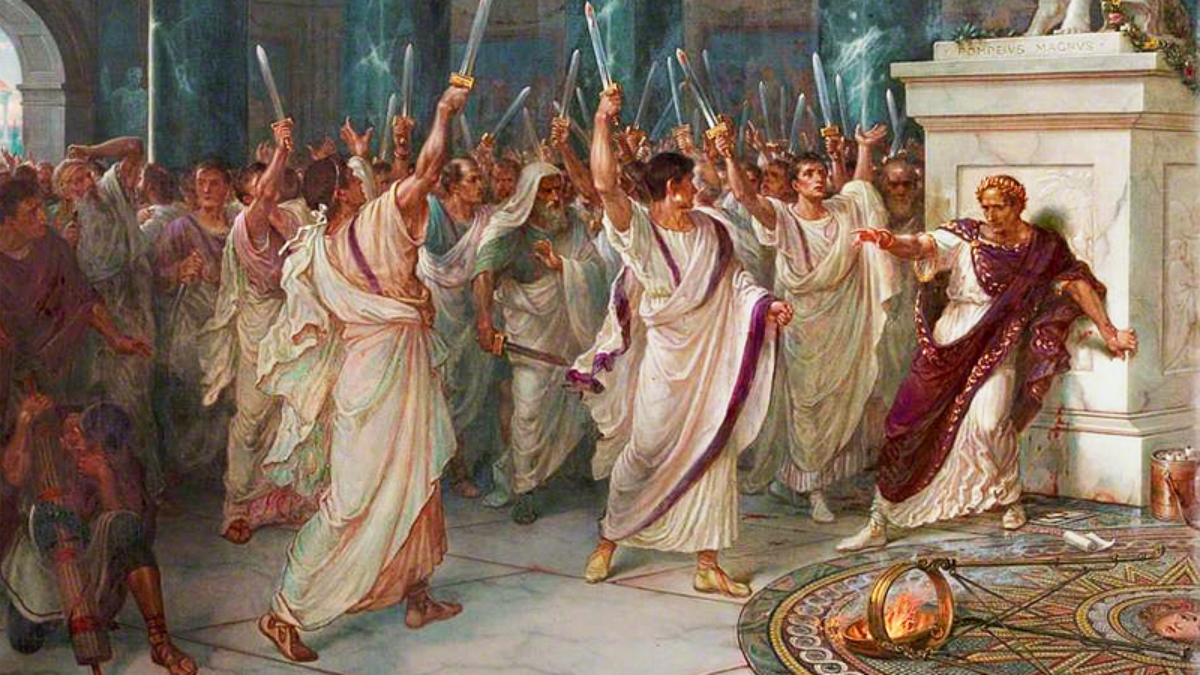Kamala Harris Is Poised to Revive the Worst Aspects of FDR’s Socialist Agenda
By: Mary Grabar | October 08, 2024
Read more at https://thefederalist.com/2024/10/08/kamala-harris-is-poised-to-revive-the-worst-aspects-of-fdrs-socialist-agenda/

Mary Grabar
At the Economic Club of Pittsburgh, Democratic presidential candidate Kamala Harris recently said she would “engage in what Franklin Roosevelt called ‘bold, persistent experimentation,’” as he had told the 1932 graduating class at Oglethorpe University. But she did not mention FDR’s vision of “remaking the world,” which included fundamentally changing “our popular economic thought” to see to “a wiser, more equitable distribution of the national income.” Instead, she said she would seek “practical solutions” and even declared, “I am a capitalist.” She said she’s “been working with entrepreneurs and business owners” for her “whole career.” (No one has yet even been able to verify Harris’ job at McDonald’s.)
She also professed her belief in “an active partnership between government and the private sector,” sounding much like FDR at the Commonwealth Club in San Francisco in September 1932. There he called for a new “economic constitutional order” built together by an “enlightened administration” and “enlightened businessmen” who together would “[adjust] production to consumption.”
Indeed, the desire to control production and fix prices was the aim of the largest contributor to the Roosevelt campaign, Wall Street speculator Bernard Baruch. He got the wish he paid for, the NRA (National Recovery Administration). Similarly, Harris supporter and billionaire Mark Cuban is vying for the position as head of the Securities and Exchange Commission and calling those who call Harris a Marxist “idiots.”
It was natural that Harris would quote Roosevelt. Biden referenced FDR in his speeches, especially in his last State of the Union address, when he invoked the “Four Freedoms,” which became the basis of his campaign (before it was usurped by Harris). The media hailed Barack Obama as the second coming of FDR, with the Nov. 24, 2008, Time magazine cover showing Obama posed as FDR in a convertible, clenching the characteristic cigarette-holder.
But as Ben Shapiro pointed out, Roosevelt’s “bold, persistent experimentation” actually prolonged the Depression. So also warned James Freeman. Relying on Amity Shlaes, Freeman noted that FDR’s impulsiveness made it impossible for businesses to plan ahead.

FDR’s Ignorance
Indeed, as I point out in my book, FDR was barely capable of keeping a sustained thought, flitting from one subject to another, like Harris does in “word salads.” He would tell two advisors with diametrically opposed solutions to compromise. He would incorporate contradictory statements into the same speech. He was ignorant about economics and made no effort to learn. Prejudices learned in childhood guided his foreign policy. Yet, he felt himself qualified to plan the economy and the lives of all Americans.
FDR experimented, indeed. He followed the economic theories of his Brain Trust (“cornfield philosophers” with Ph.D.s, as John T. Flynn called them). Instead of letting prices bottom out and the economy recover as it had after World War I, the Brain Trust ordered farmers late in the spring of 1933 to plow under crops and then taxed processors. The NRA set prices, driving out small businesses.
The result? Food shortages and increased prices for people already hungry.
Harris’ “first-ever federal ban on corporate price gouging” by food companies promises the same results.
The Politically Connected
Another experimental idea was to confiscate the gold that American citizens had been “hoarding.” Average Americans who had tried to protect their investments were ordered, by threat of a 10-year prison term and a $10,000 fine, to hand in gold bars and even Christmas gold coins. FDR then determined the price of gold, sometimes by multiples of “lucky numbers.” But Baruch kept his gold. Today, politically connected stock market speculators, e.g., those married to the former Democratic Speaker of the House, use advance knowledge about legislation to sell stocks at a profit.
Similarly, Harris’ economic policies will not provide the “opportunity” she promises to all equally. Just as FDR doled out federal funds to court votes, federal funds will be doled out selectively. She promises to increase the startup deduction from $5,000 to $50,000 and “provide low- and no-interest loans” to small businesses. On what basis? Will the loans be forgiven, just like student loans? As business owner Chad O. Jackson asks, is even a $5,000 loan needed to start a business?
Redistribution of Wealth
On MSNBC, after her speech, Harris said that she would cut the “red tape” involved in housing and low-income housing construction. She explained, “some of the work is going to be through what we do in terms of giving benefits and assistance to state and local governments around transit dollars, and looking holistically at the connection between that and housing, and looking holistically at the incentives we in the federal government can create for local and state governments to actually engage in planning in a holistic manner that includes prioritizing affordable housing for working people.”
Out of this holistic mess we can gather that federal assistance will be contingent on where the housing is built (near public transit). Such stipulations indicate more “red tape” and an exacerbation of a housing crisis largely created by the government.
Her “$25,000 down payment assistance for first-time homebuyers,” she explains, would mean “creating the ability of that working person to build intergenerational wealth.”
Like FDR, she wants a redistribution of wealth. Her ideas about “intergenerational wealth,” referred to twice in her speech and then on MSNBC, echo Nikole Hannah-Jones’ argument for reparations because of advantages in white “generational wealth.” Harris is a big fan of Hannah-Jones. She called Hannah-Jones’ 1619 Project a “masterpiece” that told the “truth” of how “the very foundation of our country was built on the backs of enslaved people.” Which first-time homebuyers will get $25,000 from the government? Look at the model Evanston, Illinois, reparations program. Number one priority is “restorative housing.”
Democrats seem to think that quoting FDR will magically reassure voters. Vice presidential candidate Tim Walz tried to salvage a disastrous debate by paraphrasing FDR’s nonsensical statement about having nothing to fear but “fear itself.”
FDR’s Real Legacy
History books, overwhelmingly written by FDR fans, quote his line about fear as if it were a gem of profundity and cast the blame for the extended Depression on other factors, such as obstructionist Republicans and judges. Some argue that FDR did not spend enough money. The fact that he was president during the crisis of depression and war, plus his long-established celebrity status as a Roosevelt, etched him into the national memory as a hero.
Historian David M. Kennedy admits that the Great Depression was “a catastrophic economic crisis that Roosevelt failed to resolve, at least not until World War II came along.” But FDR had “larger purposes.” In 1937, as a second depression hit, FDR worried that economic recovery might be “politically premature.” It might “dismantle the fragile edifice of reforms” he had instituted, and it might weaken the executive branch.
So, Roosevelt’s “reforms” and his power in the executive branch were more important than the well-being of Americans, whose life expectancy was declining. According to Kennedy, the president knew the Depression offered “a rare political opportunity, and Roosevelt made the most of it, to the nation’s lasting benefit.”
What is assumed to be the “lasting benefit” includes such things as unemployment insurance, Social Security, and banking deposit insurance. But these programs’ costs are borne by consumers. Americans’ taxes pay for deposit insurance. While “too big to fail” financial institutions were bailed out during the 2008-2009 recession, average Americans lost their homes. Under Democrat “Green New Deals,” politically connected companies, from Solyndra to Blue Whale Materials, get the loans and contracts. Obama’s make-work plan, with huge signs announcing the American Recovery and Reinvestment Act of 2009 at sidewalks that went nowhere, mimicked the make-work boondoggling of the FDR administration. In both administrations, Washington, D.C., grew and prospered. FDR never really pulled the United States out of the Depression. Obama’s first-term recovery was the slowest one ever.
Like FDR, Kamala Harris is interested in growing the government for political power and transforming the country. If more Americans understood the real FDR, they would be able to see that they do have something to fear: another FDR-like administration.













You must be logged in to post a comment.